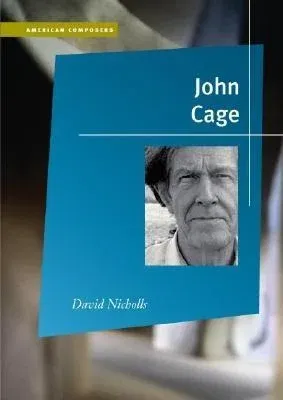David Nicholls
(Author)John CageHardcover, 1 October 2007

Qty
1
Turbo
Ships in 2 - 3 days
In Stock
Free Delivery
Cash on Delivery
15 Days
Free Returns
Secure Checkout

Part of Series
American Composers
Print Length
160 pages
Language
English
Publisher
University of Illinois Press
Date Published
1 Oct 2007
ISBN-10
0252032152
ISBN-13
9780252032158
Description
Product Details
Author:
Book Format:
Hardcover
Country of Origin:
US
Date Published:
1 October 2007
Dimensions:
21.87 x
16.46 x
1.7 cm
ISBN-10:
0252032152
ISBN-13:
9780252032158
Language:
English
Location:
Urbana-Champaign, IL
Pages:
160
Publisher:
Series:
Weight:
371.95 gm